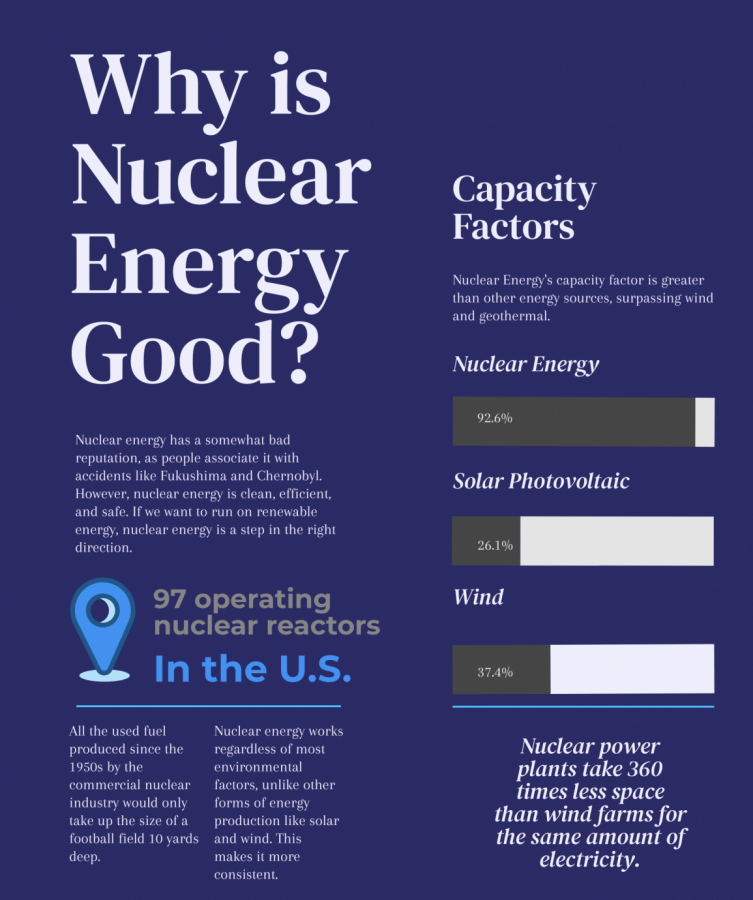Nuclear power a step in right direction
When we think of a “green” earth, what comes to mind? Solar panels in every roof? Fields upon fields of towering wind turbines? Change is imminent. In the past few decades, the dangers of climate change have become very apparent. We need to cut our carbon emissions by 45% by 2030 to prevent global temperatures from rising over 1.5°C, which would cause extreme temperature and weather changes, even more than the ones we currently see.
The effects of climate change and carbon emissions have been well observed and there is a need for change. Renewable energies, such as solar, wind, and geothermal, are great in that they provide zero emissions, but I don’t think we can power our planet on these zero emission energies alone. In my opinion, nuclear power is the right way to go.
Nuclear power tends to have a bad reputation, as most people think about the radioactive byproducts and the Chernobyl nuclear reactor accident. However, nuclear energy is very efficient and clean compared to the energy sources we have today, such as coal. Nuclear energy has a very high capacity factor compared to other renewable energy sources, which is the average power generated divided by the rated peak power. In 2018, nuclear energy had a capacity factor of 92.6% according to a report by the U.S. Energy Information Administration. Wind had a capacity factor of 37.4%, and solar photovoltaic was 26.1%. These figures make sense when you consider what they depend on. While nuclear power will work almost any day of the year, there are days without wind for wind power and cloudy days/nights to get in the way of solar power.
In addition to being efficient, nuclear power is clean and saves space. Wind farms require up to 360 times the land area that nuclear power plants would take up to produce the same amount of electricity. It produces a surprisingly low amount of waste, with all of the used fuel produced since the 1950s from the commercial nuclear industry would only fill up a football field with a depth of around 10 yards. The coal industry produces that amount every hour.
In conclusion, nuclear energy is probably one of the most promising forms of energy in our future. It’s efficient, clean, and saves space despite its bad reputation. It operates reliably and has a high capacity factor, and the fuel required is very little. Incidents such as the Chernobyl and Fukushima nuclear plant meltdown may give people the wrong idea about nuclear power, but it is actually a safe way to generate electricity. Nuclear power is a step in the right direction, and it’s important that we move toward it.
Aloha. The Pinion staff wants to send two students and one adviser to the JEA Spring Convention in Minneapolis in April 2026.
We are applying for a first-time attendee grant to cover lodging and registration fees. However, we could use your help to pay for travel.
We have other ways you can support The Pinion, too. Visit https://mhspinion.com/about to learn more.

I'm Ryan Vanairsdale, an editor for The Pinion. I originally chose newswriting in 9th grade because I liked the class in middle school. I also liked writing...









